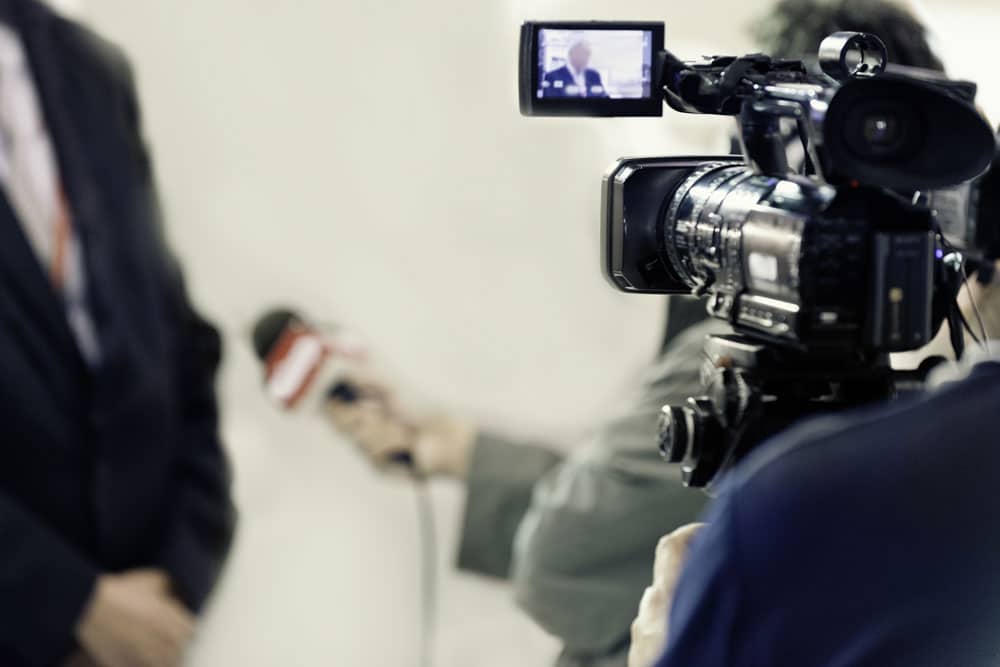You never know when something unexpected can cause damage to your brand’s reputation. Sometimes, poor timing means that a social media post is taken very differently than you intended. Other times, an issue with a product can lead unhappy customers to take their grievances online.
While every brand suffers occasional missteps sometimes, the ones who get through largely unscathed are those who have a robust rapid response plan already in place to deal with reputation management issues.
The stories below can demonstrate what happens when you aren’t prepared:
Fashion Designer Makes the Wrong Joke at the Wrong Time
In June, fashion designer Jeremy Scott launched a new ad campaign featuring models whose skin had been altered to display unearthly colors. The accompanying caption on Instagram for one image read, “THE ONLY THING ILLEGAL ABOUT THIS ALIEN IS HOW GOOD SHE LOOKS.”
While the campaign was meant to be a joke referencing JFK’s conviction that aliens were real, the timing of the quip was poor. At the time the campaign was launched, US readers were just learning about the thousands of immigrant families being separated at the border.
Dismayed followers took him to task, commenting that the ads were insensitive, given the current news cycle. Stories popped up across the web as people screen capped and reshared the images. Scott attempted to diffuse the tension with a claim that the ad was designed to bring attention to attitudes toward illegal aliens; however, readers were not buying the explanation.
The post stayed up in its original form for nearly a day before Scott edited the caption to make a pro-immigrant statement instead. However, many were not mollified. According to Newsweek, the designer apologized the next day.
The speed with which Scott was condemned by followers draws sharp attention to how quickly a poorly timed social media post can blow up, particularly on highly active platforms like Instagram. Having skilled crisis management professionals handy to help you respond quickly — and to help you craft a response that won’t just fan the flames — is vital.
Beverage Company Fails to Learn from Failed “Lady” Products
Even social media mavens can be forgiven if they don’t remember the “Bic for Her” brush-up. In 2012, people began wondering what was so different about female hands that they necessitated a different set of pens. The result was a series of jokes at the pen company’s expense and a plethora of one-star reviews for the product’s page on Amazon to this day.
They’d be more remiss if they managed to miss the backlash in January of 2018 when a PepsiCo executive enthused about a proposed “Lady Doritos” variety that would be less likely to leave messy crumbs and cheese dust on dainty fingers.
However, Scotch purveyors Johnnie Walker failed to take in those lessons before launching a limited edition “Jane Walker” bottle in March of this year. The company’s intentions were good — they were merely trying to provide more equal representation in an area that is often male-dominated. However, the perception of past products geared toward women overshadowed these positive intentions.
A skilled crisis communications consultant can help a brand identify potential issues like these before they ever occur. Someone in this role will be well-versed in past social media snafus and able to gently steer companies away from well-intentioned promotions that are unlikely to be taken well by the public.
Social Media CEO Fails to Understand Social Media
One of the biggest social media stories over the past few years has been the meteoric growth of ephemeral image network SnapChat. However, CEO Evan Spiegel failed to realize that word might get out after he insulted two highly populous countries in a meeting. In a user growth meeting in 2015, Spiegel brushed off suggestions to continue to build user base by offering increased support overseas. Spiegel’s cited reasons were that SnapChat was for rich people; he did not wish to expand into poor countries like India and Spain.
The story managed to stay under wraps until former employee Anthony Pompliano told entertainment magazine Variety about the gaffe. Social media users in both countries were quick to take offense, and to share their displeasure through a popular #boycottsnapchat hashtag on platforms that included Instagram and Twitter.
The fact that it took two years for this information to come back to haunt the company shows that anytime could the time for a reputation crisis. Content on the internet is ephemeral in some respects but has the power to float back into public consciousness at the least convenient times. A quality crisis communications plan means that you are less likely to be caught by surprise if a past comment comes back to haunt you.
Uber Misjudges a Moment
When New York taxi drivers chose to protest an immigration ban through a one-hour strike at New York’s JFK International Airport, the brass at Uber decided that the protest offered an opportunity. Immediately after the announcement, Uber took to Twitter to announce that they were dropping surge pricing at the airport, effectively engaging in strike breaking.
The company underestimated the feelings of New Yorkers on the strike, the immigration ban and Uber itself. The result was a #deleteuber hashtag that is still used dozens of times a day on Twitter.
By engaging in a greater degree of social listening, Uber may have been able to anticipate the potential backlash and avoid a costly and ongoing PR nightmare.
McDonald’s Learns a Costly Lesson in Password Security
While there are some who say that brands should never get involved in politics, there are just as many examples of brands taking a moral or ethical stand and benefiting from it. However, we can probably all agree that when a brand takes a position, it should probably at least be its own.
McDonald’s took an unusual political position on Twitter in March 2017 when they posted a tweet highly critical of President Trump. The tweet read, “@realDonaldTrump You are actually a disgusting excuse of a President and we would love to have @BarackObama back, also you have tiny hands.” The tweet wasn’t just posted in passing; it was pinned to the top of the fast-food giant’s feed for an unknown length of time.
The biggest problem? No one at McDonald’s posted it. McDonald’s removed the tweet in question and replaced it with a message saying that they had determined that their Twitter account had been hacked by outsiders. Password hacks happen every day. In most cases, they are the result of phishing or easily guessable password reset clues. Working with a crisis management consultant is one way to ensure that everyone on your team understands how to recognize phishing attempts and the best practices for avoiding passwords and clues that are too easy for outsiders to get ahold of.
The Takeaway
No company is perfect. And, in today’s high-speed communications environment, a negative story can take off at any time. However, the companies that come through with the least damage are those who understand the nature of today’s digital landscape. By learning how to avoid reputation problems and how to recover quickly when a crisis occurs, you can keep your brand’s reputation safe from harm.
Can we help you?
Building an effective crisis management process that incorporates crisis management, crisis communications, and other functions within your firm is what we do here at Bryghtpath. Such a process can help you weather the storm when you encounter a significant issue.
Bryghtpath has built the crisis management plans and frameworks for many Fortune 500 organizations, non-profits, and public sector agencies. Our firm has more than a century of experience in developing actionable plans to help prepare organizations for the unexpected. Our expertise includes crisis communications and emergency plans/exercises.
Contact us today at +1.612.235.6435 or via our contact form.


 How to Avoid a Public Relations Crisis
How to Avoid a Public Relations Crisis